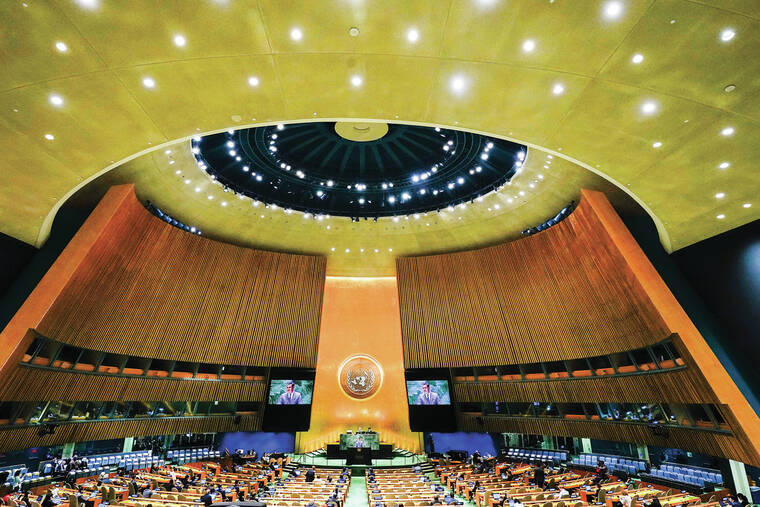AI is on the world’s mind. Is the UN the place to figure out what to do about it?
UNITED NATIONS — Just a few years ago, artificial intelligence got barely a mention at the U.N. General Assembly’s convocation of world leaders.
But after the release of ChatGPT last fall turbocharged both excitement and anxieties about AI, it’s been a sizzling topic this year at diplomacy’s biggest yearly gathering.
ADVERTISING
Presidents, premiers, monarchs and cabinet ministers convened as governments at various levels are mulling or have already passed AI regulation. Industry heavy-hitters acknowledge guardrails are needed but want to protect the technology’s envisioned benefits. Outsiders and even some insiders warn that there also are potentially catastrophic risks, and everyone says there’s no time to lose.
And many eyes are on the United Nations as perhaps the only place to tackle the issue at scale.
The world body has some unique attributes to offer, including unmatched breadth and a track record of brokering pacts on global issues, and it’s set to launch an AI advisory board this fall.
“Having a convergence, a common understanding of the risks, that would be a very important outcome,” U.N. tech policy chief Amandeep Gill said in an interview.
But if the United Nations has advantages, it also has the challenges of a big-tent, consensus-seeking ethos that often moves slowly. Plus its members are governments, while AI is being driven by an array of private companies.
Still, a global issue needs a global forum, and “the U.N. is absolutely a place to have these conversations,” says Ian Bremmer, president of the Eurasia Group, a political risk advisory firm.
Even if governments aren’t developers, Gill notes that they can “influence the direction that AI takes.”
The United Nations will have to navigate territory that some national governments and blocs, including the European Union and the Group of 20 industrialized nations, already are staking out with summits, declarations and in some cases regulations of their own.
Ideas differ about what a potential global AI body should be: perhaps an expert assessment and fact-establishing panel, akin to the Intergovernmental Panel on Climate Change, or a watchdog like the International Atomic Energy Agency? A standard-setting entity similar to the U.N.’s maritime and civil aviation agencies? Or something else?
Even before the U.N. advisory board sets a detailed agenda, plenty of suggestions were volunteered amid the curated conversations around the General Assembly. Work on global minimum standards for AI. Align the various regulatory and enforcement endeavors around the globe. Look at setting up AI registries, validation and certification. Focus on regulating uses rather than the technology itself.





